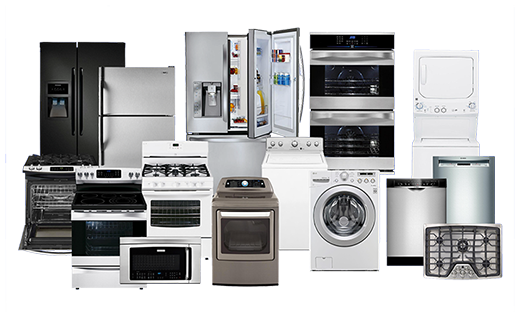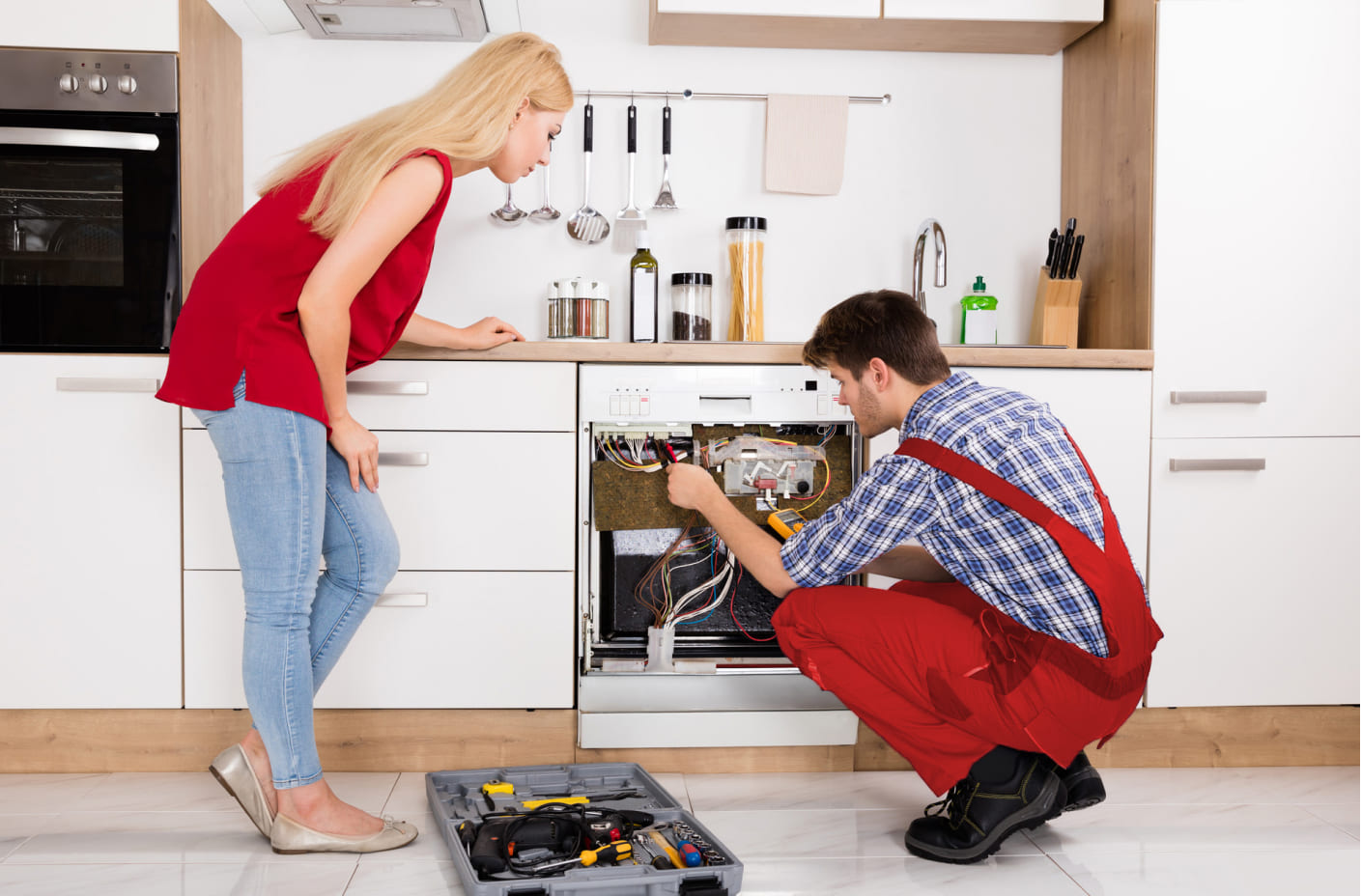Can You Use Generic Appliance Parts? – Dependable Refrigeration & Appliance Repair Service Washing Machine Repair
Can You Use Generic Appliance Parts? – Dependable Refrigeration & Appliance Repair Service Washing Machine Repair
Blog Article
The Ultimate Guide to Understanding Home Appliance Repair Service at Home
When your fridge stops cooling or your oven rejects to warmth, it can really feel frustrating. Recognizing home appliance repair at home can save you time and cash. You'll discover to identify signs, utilize essential tools, and follow an organized troubleshooting procedure. Yet prior to you begin, there are crucial safety and security precautions you require to take right into account. What are the most usual issues, and how can you fix them? Allow's explore the fundamentals.
Typical Device Problems and Their Symptoms
When your appliances start breaking down, it's important to identify the indicators beforehand. Ignoring them can result in larger problems and pricey repair work. As an example, if your refrigerator isn't cooling down appropriately, you could notice warm areas or condensation developing. This could suggest a stopping working compressor or an obstructed vent.Your dish washer may reveal issues via dirty dishes or uncommon noises throughout cycles. If you listen to grinding or clanking, it's time to investigate.A cleaning machine that won't spin or drain can leave you with soggy laundry, suggesting a blocked drain or a malfunctioning pump.Lastly, if your oven's temperature appears off or it takes permanently to pre-heat, you may be dealing with a damaged thermostat. By remaining alert to these signs, you can attend to concerns prior to they escalate right into significant fixings.
Necessary Tools for Appliance Repair Work
When you're taking on device fixings at home, having the right devices is necessary. Fundamental hand devices like screwdrivers and pliers will assist you dismantle and fix different devices, while electrical testing devices ensure you're functioning safely with electrical wiring. Let's go over what you need to begin on your fixing journey.
Standard Hand Devices
Having the right tools is vital for efficient home appliance fixing in your home. Begin with a reputable screwdriver collection, consisting of both flathead and Phillips kinds, as screws prevail in device assembly. Pliers are likewise crucial; they aid with gripping, twisting, and cutting cords or tiny components. A pair of needle-nose pliers can get to difficult situations conveniently. You'll require a good adjustable wrench for tightening up or loosening up nuts and bolts. An energy blade comes in handy for reducing with packaging or insulation. Do not forget a sturdy workbench or surface area to safely organize your devices and parts. With these basic hand devices, you'll be well-prepared to tackle most device fixings that come your method.
Electric Screening Tools
Alongside standard hand tools, electrical screening tools play an essential duty in device fixing. These devices assist you diagnose electrical concerns and warranty home appliances work securely. A multimeter is essential; it measures voltage, existing, and resistance, permitting you to identify issues swiftly. A non-contact voltage tester is another must-have, letting you identify online cables without making straight call, enhancing your safety. Secure meters are excellent for determining existing flow in cords without detaching them, conserving you effort and time. Furthermore, circuit testers can swiftly examine if electrical outlets are operating appropriately. By utilizing these devices, you'll improve your troubleshooting procedure and enhance your repair abilities, making device maintenance a great deal much easier.
Step-by-Step Guide to Diagnosing Home Appliance Issues
When your appliance breaks down, it can be irritating, but detecting the issue doesn't have to be overwhelming. You'll find out to identify usual troubles and use effective repairing methods. Allow's go through the steps to obtain your appliance back in working order.
Common Appliance Issues

Fixing Methods Discussed

Fixing Major Cooking Area Devices: A Closer Look
Have you ever before asked yourself just how to take on common problems with your kitchen devices? Repairing significant cooking area devices like fridges, stoves, and dishwashing machines can be easier than you assume. Begin by determining the problem-- whether it's a refrigerator not cooling or a stove that will not heat. Typically, a simple reset or examining the power resource can address the issue.For fridges, clean the condenser coils and inspect the door seals. If your oven's not heating, examine the burner and thermostat. Dishwashing machines might simply require a clean filter or a reset to get them back at work. Constantly unplug the home appliance prior to diving into repairs to guarantee your safety.Don' t fail to remember to get in touch with the user handbook for details troubleshooting pointers associated with your model. With a little bit of persistence and the right tools, you can confidently deal with device repairs and conserve money while doing so!

Troubleshooting Laundry Equipments: Tips and Techniques
When your washing home appliances begin breaking down, it can feel overwhelming, however fixing them does not have to be a problem. Beginning by examining the power supply. Validate the appliance is connected in and the electrical outlet is functioning. Next, evaluate the door or lid button; a malfunctioning switch can prevent the maker from operating.For washers, if it's not rotating, look for out of balance tons. Rearranging the clothes may solve the problem. If your dryer isn't home heating, clean the dust filter and inspect the vent for blockages.Listen for uncommon noises; they can show a problem. If your appliance is leaking, examine the tubes for cracks or loose connections. Document any type of error codes presented on electronic displays, as they can lead you in determining the issue. Speak with the customer manual for particular troubleshooting pointers connected to your version.
Safety Preventative Measures to Take Throughout Repairs
Prior to you begin any type of appliance fixings, it's necessary to prioritize safety to avoid mishaps or injuries. First, disconnect the appliance or switch off the circuit breaker to guarantee no power reaches it while you work. Usage insulated tools to reduce the threat of electrical shock. Wear security goggles and handwear covers to safeguard on your own from sharp sides or debris (Dependable Refrigeration & Appliance Repair explanation Service Washing Machine Repair).Make certain your work space is neat and well-lit, so you can see what you're doing. Keep youngsters and animals away from the area to prevent distractions and potential threats. If you're dealing with gas home appliances, be extra cautious; check for leaks prior to proceeding.Take your time, and do not hurry via fixings. If you really feel unsure about any step, it's much better to stop briefly and research than to guess. Complying with these safety measures will aid create a more secure setting for your DIY home appliance fixing project
When to Call an Expert for Help
How do you recognize if it's time to hire a professional for device repair services? If you've tried fundamental troubleshooting without success, it's a clear indication. For example, if your home appliance still won't begin or shows unusual sounds after resetting it, do not be reluctant to look for expert help.When you observe leaks, smoke, or burning scents, focus on security and call a pro right away. These issues can cause more considerable damages or present risks to your home.Also, if your home appliance is under warranty, calling a professional is usually the ideal path. They can assure that fixings will not nullify your guarantee, conserving you money in the long run.Finally, if you're unsure or awkward with complicated repairs, it's smart to leave it to the experts. Keep in mind, taking on challenging issues without the appropriate competence can cause costly blunders. Trust fund an expert when in doubt!
Regularly Asked Questions
Just How Can I Avoid Home Appliance Troubles in the Future?
To avoid appliance issues in the future, you must carry out routine maintenance, look for damage, clean filters, and prevent overloading. Staying proactive will assist prolong their life expectancy and keep them running efficiently.
What Are one of the most Typical DIY Device Repair Mistakes?
You might neglect safety and security preventative measures, avoid troubleshooting steps, or make use of inaccurate tools when attempting DIY appliance repair services. Rushing the process or disregarding supplier standards can cause even more considerable problems and costly errors. Remain patient and notified!
Exactly how Do I Know if a Part Demands Replacement?
You can inform if a part needs replacement additional resources by inspecting for uncommon sounds, leakages, or irregular efficiency. If the appliance battles to operate appropriately or shows noticeable damages, it's likely time for a substitute.
Can I Utilize Generic Components for Device Repair Works?
Yes, you can use common parts for appliance repairs, however establish they work - Fixes washers and dryers Oro valley Dependable Appliance Look At This Repair. Generic components might conserve you money, but they can affect efficiency or longevity, so evaluate your options carefully before making a choice
What Warranties Cover Appliance Repair Works?
The majority of device guarantees cover fixings for making defects, yet they frequently omit damage from abuse. Inspect your service warranty terms carefully, as some might require utilizing certified technicians and original parts for protection to continue to be valid.
Report this page